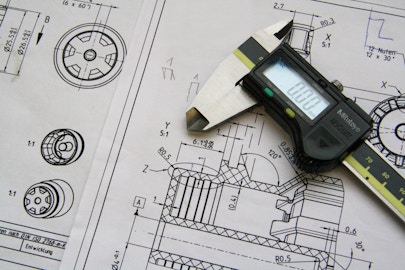Mechanical Engineering

Although mSemicon‘s original activities were in pure electronic enginering, its complementary nature meant that mechanical engineering has always played a part. While we still excel in electronics over everything else, we have over the years developed a substantial know-how in the area of mechanical engineering. Some of this is internal while some other is in collaboration with a number of external partners.
In general, mSemicon engages in mechanical engineering work in the context of electronic product development, i.e. as a complement to an electronic circuit board being developed.
Design
The mechnical design process follows a similar trajectory to electronic design work. First a concept is proposed, checked for feasibility and validity, before the design process starts in earnest.
The design undergoes several levels of revision, based on overall engineering considerations, client feedback, and so on, before it is ready for the prototyping stage.
Physical prototyping
3D printers
mSemicon has a number of 3D printers and machining tools which allow mechanical concepts to be conceptually checked at the early stages of project development. A mechanical idea can be verified or discarded in a matter of days, sometimes even hours. When the concept is verifed, it then proceeds to the design stage.
Temporary moulds
Beyond the printed 3D concept stage, it usually makes sense - if the intention is ultimately to tool up a mould - to test the design by making a temporary mould, i.e. make a prototype. The prototype, while normally not the exact same (in terms of material consistency) as the final tooled part, can give a very valuable insight into the suitability of the proposed solution. It allows time to modify or correct the design if performance issues are uncovered. mSemicon makes regular use of temporary moulds.
Tooling
When a mechanical product reaches the point where it will be manufactured in volume, it is time to tool it up. mSemicon can make all the arrangements for this (design for tooling, tool making) as well as source the finished part.
Machined solutions
Some products, especially those of low volume, are not suitable for tooling, and need to machined. This is relatively more expensive (per piece), but it obviates the need to tool up. It is also quicker to produce, as tooling time is not a factor.
mSemicon can take care of all the steps necessary to turn our client’s requirements into a finished piece of engineering.
Photograph by Anyusha (Anja Heidsiek) on Pixabay